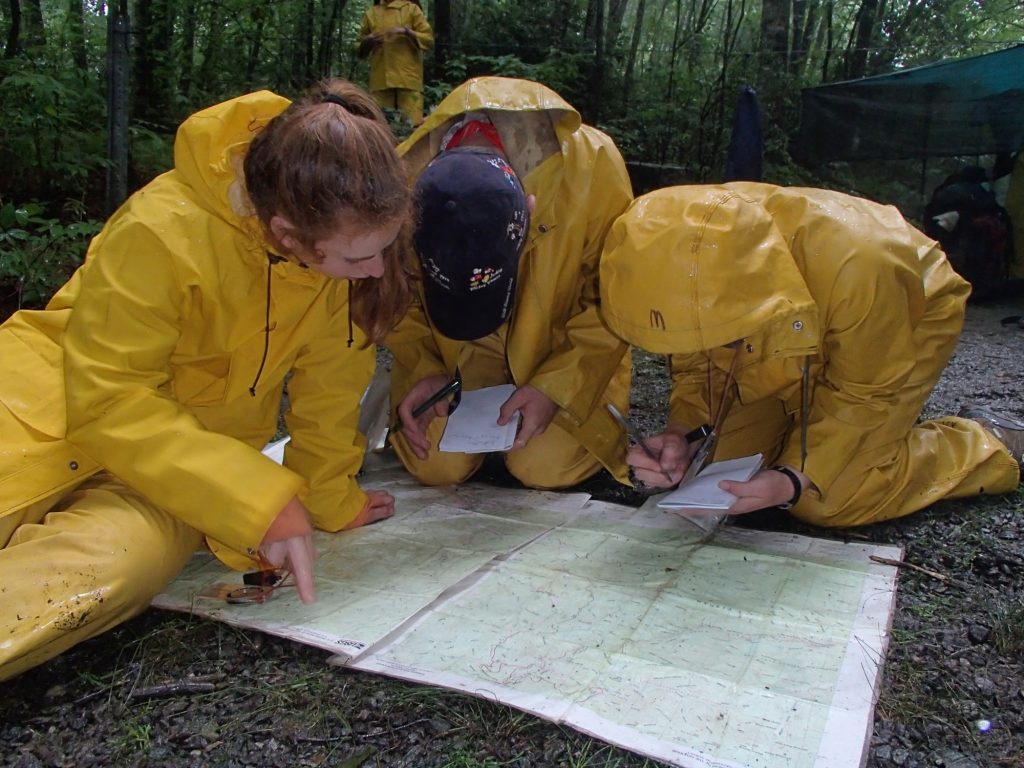At some point, you’ve probably heard your own parents complain about the “kids these days!” There’s even a scientific name for the fear of a younger generation’s moral degradation: juvenoia. While these generational clashes have existed for centuries, risky behavior by teens can be worrisome and can leave the people who care about them feeling hopeless and like they have no control over the situation.
But here’s the secret: teenagers often feel that they have no control over their situation. It’s a big reason why they may act out. Risky behavior can be an attempt to obtain independence from their circumstances. Drugs and alcohol can subdue unwanted emotions that are heightened during adolescence; breaking rules can feel like freedom from a system they had no say in creating; aggression can help gain control over the behavior of others. What many teenagers don’t recognize, is that there are more effective ways to get a grip. And the first step is recognizing exactly what they can and cannot control.
Getting a Grip on the Teenage Brain
As an Intercept Instructor, I’ve acted as the frontal lobe for my students many times. Allow me to explain. The human brain develops slowly, not reaching full maturity until about age 25. The last part of the brain to develop, the part that takes the longest, is called the frontal lobe. This area controls decision-making, emotion regulation, memory and judgment. Ask a frustrated parent what their teen struggles with most, and you’ll probably get the list you just read. These are a struggle for teens because…well, that part of their brain doesn’t fully exist yet.
During our Intercept Program for struggling teens and young adults, we spend a lot of time helping students realize the consequences of their actions. Reminding teens that cooking, cleaning and hiking is necessary for surviving in the wilderness is about as routine as waking up each morning.

Photo by Mikaela Hamilton
As adults, our frontal lobes and powers of reason are fully-developed. As such, we have the responsibility to help teenagers do some of their thinking for them. To find one of the best methods, we can look back to an Ancient Greco-Roman philosophy.
The Dichotomy of Control
“If you have fear of some pain or suffering, you should examine whether there is anything you can do about it. If you can, there is no need to worry about it; if you cannot do anything, then there is also no need to worry.” -Dalai Lama XIV
Stoicism was founded in the 3rd Century B.C.E., by Zeno of Citium, a wealthy merchant turned shipwrecked castaway, turned philosopher. As with any philosophy, it can be dense, but should be lived instead of simply pondered. Stoicism is a mindset that helps us see past our tendency to label events as “good” or “bad,” and to instead see them objectively as opportunities from which we can derive benefit. No matter how undesirable and out of control a situation feels, it is within our control to gain something from it.
The Dichotomy of Control is the idea that much of human suffering comes from the inability to recognize what they should focus their energies on. Many people spend their lives trying to control other people, their own emotions or winning the lottery. These are outside our power. How we think and react to them is a different story. We have conscious control over our mindset at all times. The more we practice recognizing only what we can control, the less time we spend trying to make something happen that never will.
An Intercept course offers the ideal conditions in which to practice this. Here’s an example:
As the rain begins to fall we are faced with a few choices. We can complain, wish that it would go away, assure ourselves that it will stop soon, or attempt to appease the rain gods with a rain dance. Obviously we all know that the weather is something we have no control over. Our other choice is to suck it up, put on our stiff but effective rain gear, and try to keep our own morale up. These are most certainly within a human’s abilities. Take it a step further and we may try to boost our crew’s morale as well. Or if we’re really swinging for the fences, we might remember that it was stinking hot outside and this rain actually feels pretty good.

In the first few days of an Intercept course, we often see many variations of the rain dance. Students may sit down in frustration, refuse to wear their rain gear because it’s uncomfortable, or yell at the clouds as if they’re listening. It doesn’t take long for them to realize Mother Nature is deaf. A week into a course, the sight of heavy clouds prompts the proactive donning of rain gear and the collective battle cry of “We will get through this!” Wishing does nothing, action does something. This environmental example evolves into a perfect analogy where a teenager scrutinizes their own life, deciding whether their reactions have been fruitful or wasted. And parents need help with this too. You can’t control your child’s behavior, but you can control your reaction to it. Will you react in anger? Or fear? Or will you hold the line and do exactly what you said you would?
Transference: How Navigating the Woods Helps Teens Navigate Life
“The impediment to action advances action. What stands in the way, becomes the way.” -Marcus Aurelius
The outdoors cannot be controlled. While on an expedition, we are faced with weather, terrain, heat, bugs and other conditions that simply do not care about our preferences. So what do we do? We develop tools—maps, compasses, self-care practices, tarps, fire; we focus our effort on what we can control, rather than wishing for some adversity to go away. You wouldn’t go on an expedition without a map and compass, so why attempt the expedition known as life without one?
On my last Intercept course, I had the students form a line. I then asked them to cross the line to the right if they agreed with the statement I was about to read, to the left if they did not. I began.
It was your choice to come to Outward Bound.
Almost every single student disagreed. How could they not? It was their parents’ fault after all; their parents that thought there was something wrong with them. They didn’t choose this life of perpetual sweat and mosquito meet-and-greets every night!
I read a few more statements for the students to react to:
You can control the weather.
You can stop your anger.
You can control others.
You can control your mindset.
Answers varied and discussions ensued. Eventually, I cycled back to the first question and something interesting happened.
It was your choice to come to Outward Bound.
This time, there were only a few holdouts standing in opposition, and they were quickly being reality checked by the other side. “Sure you didn’t want to come, but you got in the car, right? I heard you say that even though you don’t want to be here, you do have stuff you want to work on! Why haven’t you run away then?” Their talks were more effective than anything I could have said. The crew had realized that no matter what happens, there is something that you can control. Every experience becomes an opportunity to practice some virtue, to make some progress, to become that much stronger.
No Matter What Happens, Love Your Fate
On the final day of that course, we sat in a circle. For the last 28 days, we had practiced shifting our mindset. Hiking over mountains was no longer a chore, it had become a chance to get healthy and see something breathtaking. Rain was no nuisance, it was a resilience booster. An argument wasn’t a fight, it was a chance to practice effective communication and coping skills. Did everyone understand this 100%? No, but we had each learned to love our fate a little bit more, something the Stoics called Amor Fati. If you can’t do anything about it, you might as well learn to love it.

We sat in the circle discussing the uncertain future and the sometimes painful past. It was clear that they all wished their circumstances in life were somewhat different, or that things in the past had not happened. As they shared, tears fell. I asked them whether we should wish for bad things to go away, or instead to thank them for happening in the first place. Quiet followed. It felt almost inconsiderate to ask these children who had gone through times that no one should have to experience. But, heads started to nod. Most agreed. If not in words, then in silence. Without the bad, the pain, the suffering—we would not be half as strong, half as fascinating as we are today. We wouldn’t be who we are. And the world would be a lot less interesting.
If your life is out of control, maybe you just need to get caught in the rain.
About the Author
Christian Vogelgesang has been instructing for the North Carolina Outward Bound School for over two years. His favorite part about the job is watching a crew rise to meet a challenge. When he is not instructing, he can be found playing music or playing pranks.




